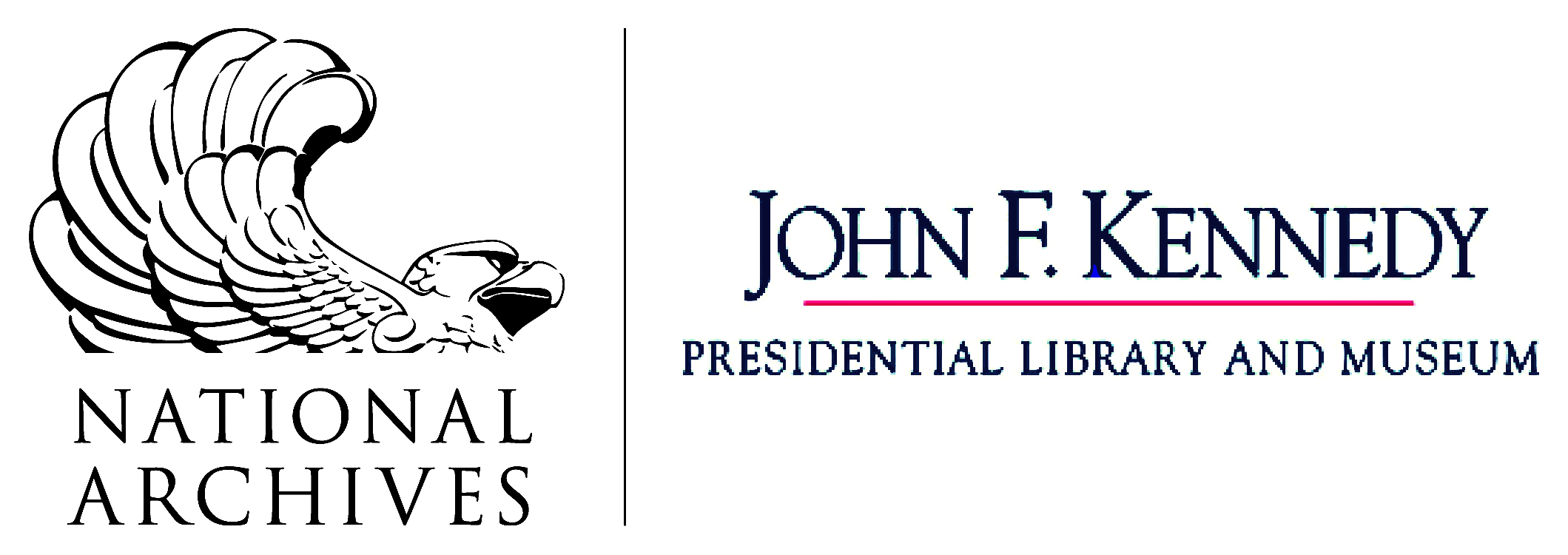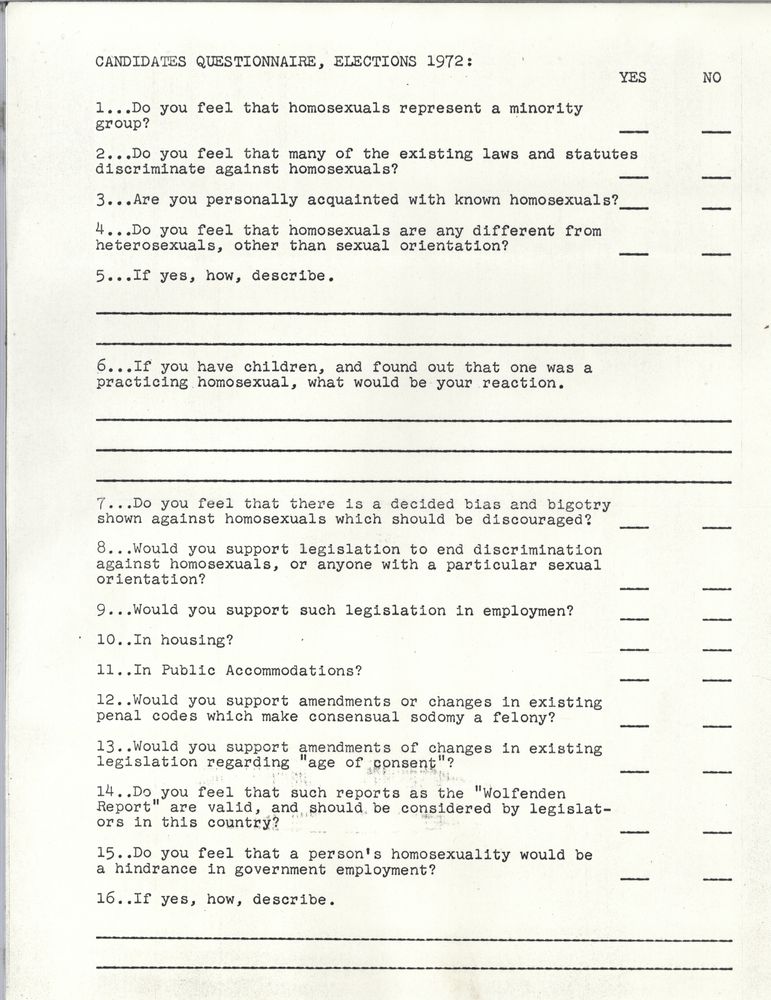By Stacey Flores Chandler, Reference Archivist
For a lot of researchers and visitors to Presidential Libraries, it might be surprising to learn how much stuff in our archives isn’t directly related to a President. But these unexpected treasures often add a lot to what we know about an historical era, shedding new light on communities that may have been left out of popular narratives.
A great example here at the John F. Kennedy Presidential Library: we house papers that capture an important part of the history of the American gay rights movement. It can be tough to research the LGBTQ community’s interactions with the government in the mid-20th century, when gay and lesbian individuals were often subject to discrimination (both in society at large and by the government) or violence. This made it risky for LGBTQ people to engage in activism or even to document their experiences, but activists like Dr. Frank Kameny still wrote thousands of letters to government officials over their lifetimes. Though their original purpose was to advocate for the gay community, many of the letters and responses eventually wound up in government archives around the country, ensuring that documentation of LGBTQ political efforts would be preserved with other official records of the time period.
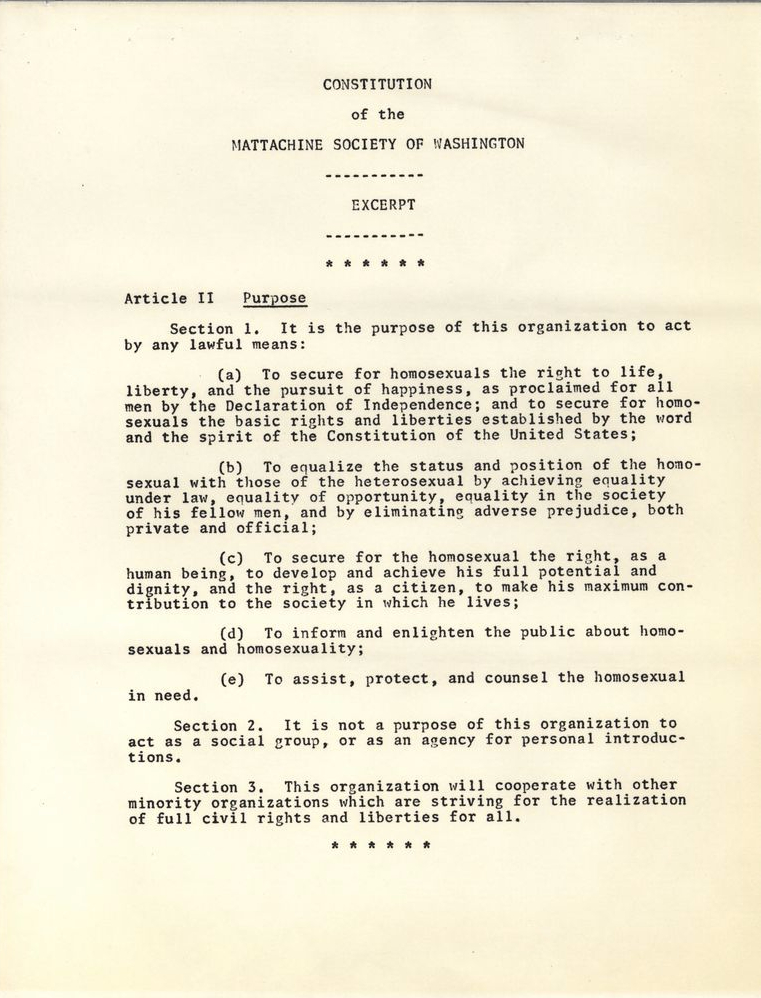
Here at the JFK Library, we take care of letters that Kameny wrote to President John F. Kennedy between 1961 and 1963. But Kameny makes a few later appearances in the archives, popping up again in 1972 as a leader of Gay Citizens for McGovern. The group urged Presidential candidates go on the record with their policies toward “homosexually-oriented individuals.”
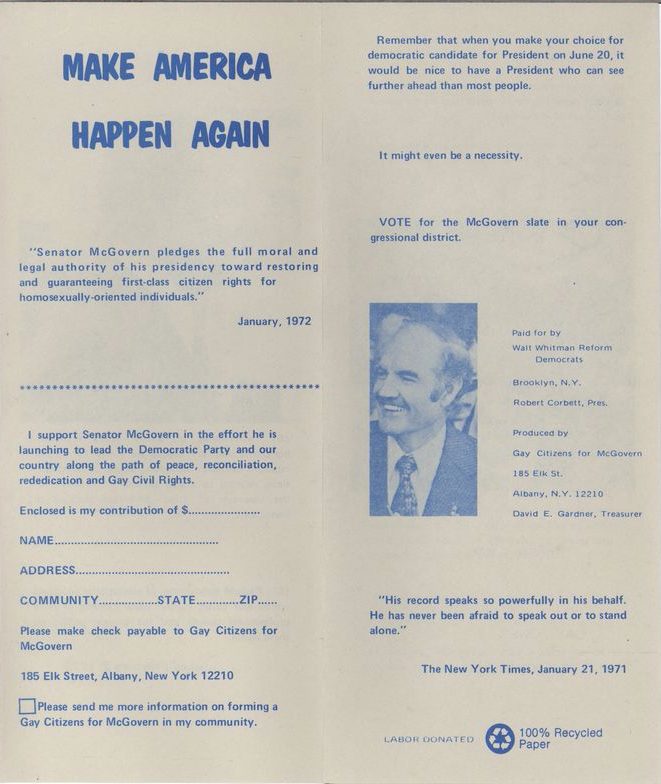
Why are these documents – from nearly a decade after Kennedy’s Presidency – here? Enter Frank Mankiewicz, who donated his collection of personal papers to the JFK Library. He worked as a Peace Corps Country Director in President John F. Kennedy’s administration, and was Press Secretary for Senator Robert F. Kennedy’s 1968 Presidential campaign. But the small file he titled “Gays” was created in his capacity as Senator George McGovern’s 1972 Presidential campaign manager, and it documents the campaign’s interactions with LGBTQ activists. The folder includes a candidate questionnaire sent by The Advocate correspondent Guy Charles, which captures some of the concerns within the community in the early 1970s.
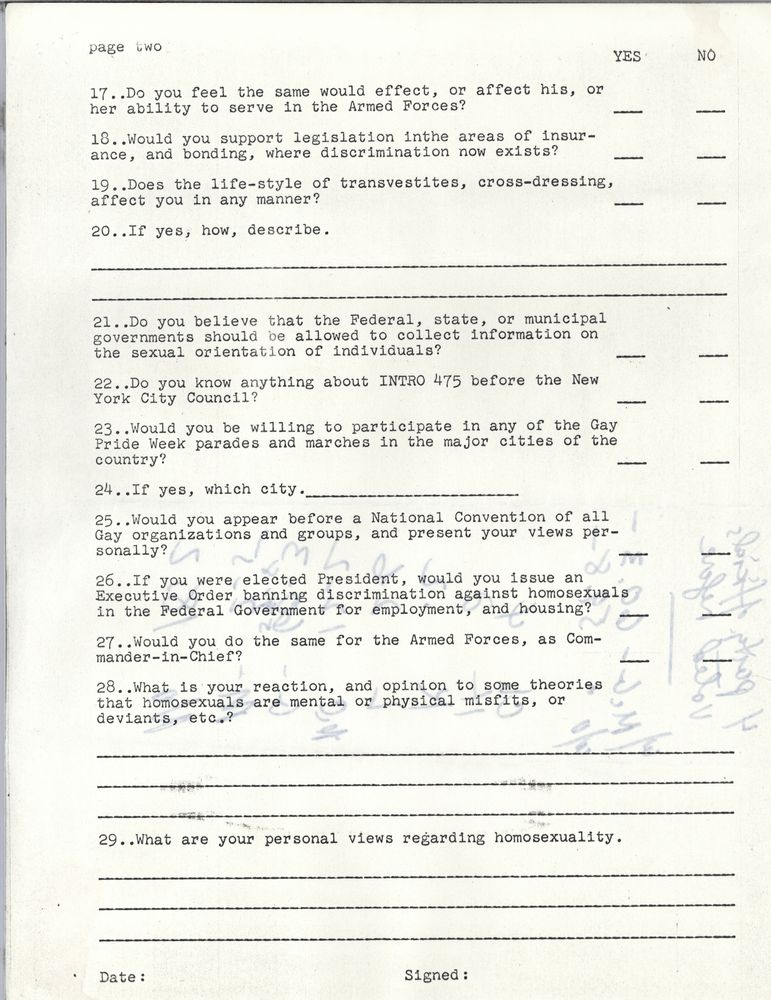
It doesn’t appear that Senator McGovern returned his questionnaire, but he did propose a multi-point plank in support of gay rights in early 1972. However, the plank was dropped from the official Democratic Party platform, and according to Sean Robert Cahill’s Same Sex Marriage in the United States, such language wasn’t included in the Party platform until 1980.
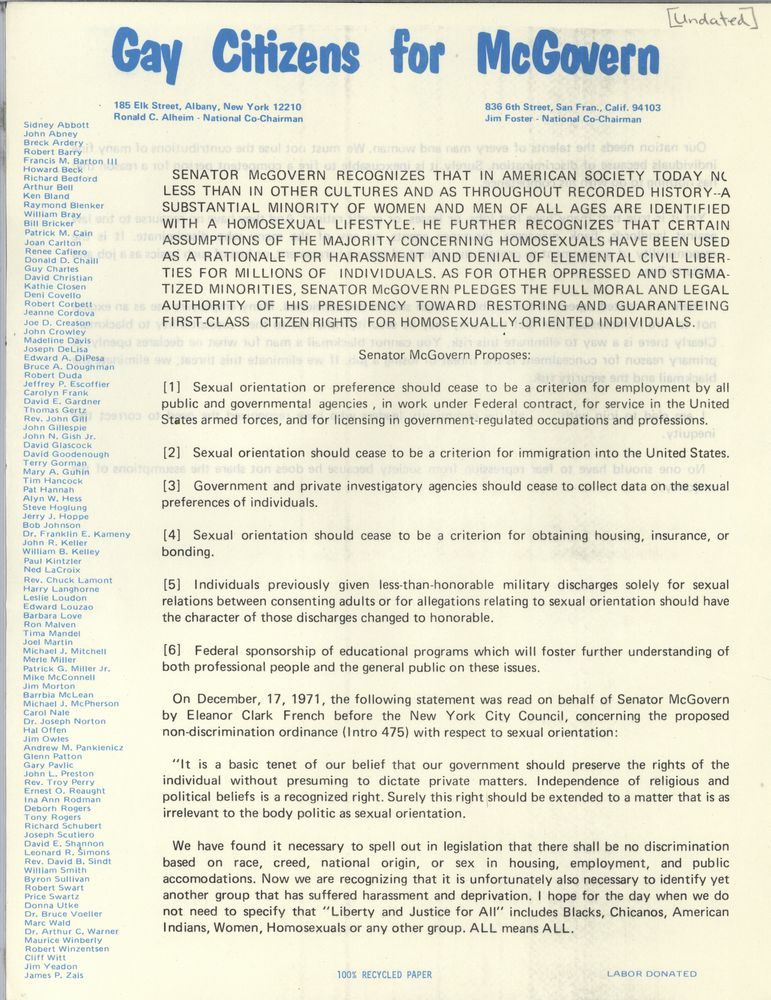
While it always takes some detective work to figure out why an archives has something that seems completely out of its scope – like 1972 gay rights materials at the JFK Library – we think this is part of what makes archival exploration (and the preservation and description that make it possible) so important. There are countless stories like these in the stacks, documenting lives and experiences that haven’t always been included in narratives about American history. As archivists, our goal is to help people find as many of them as possible!
